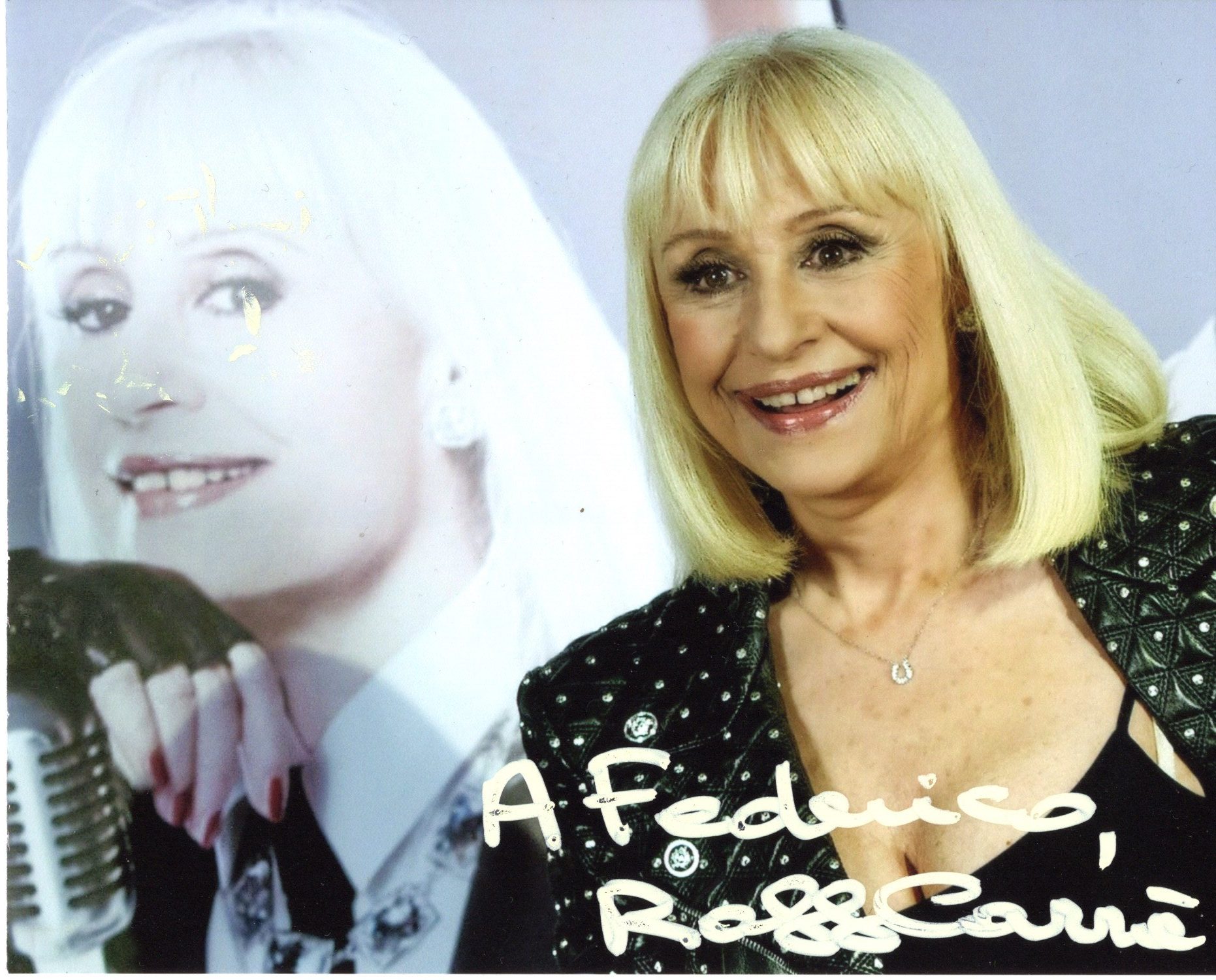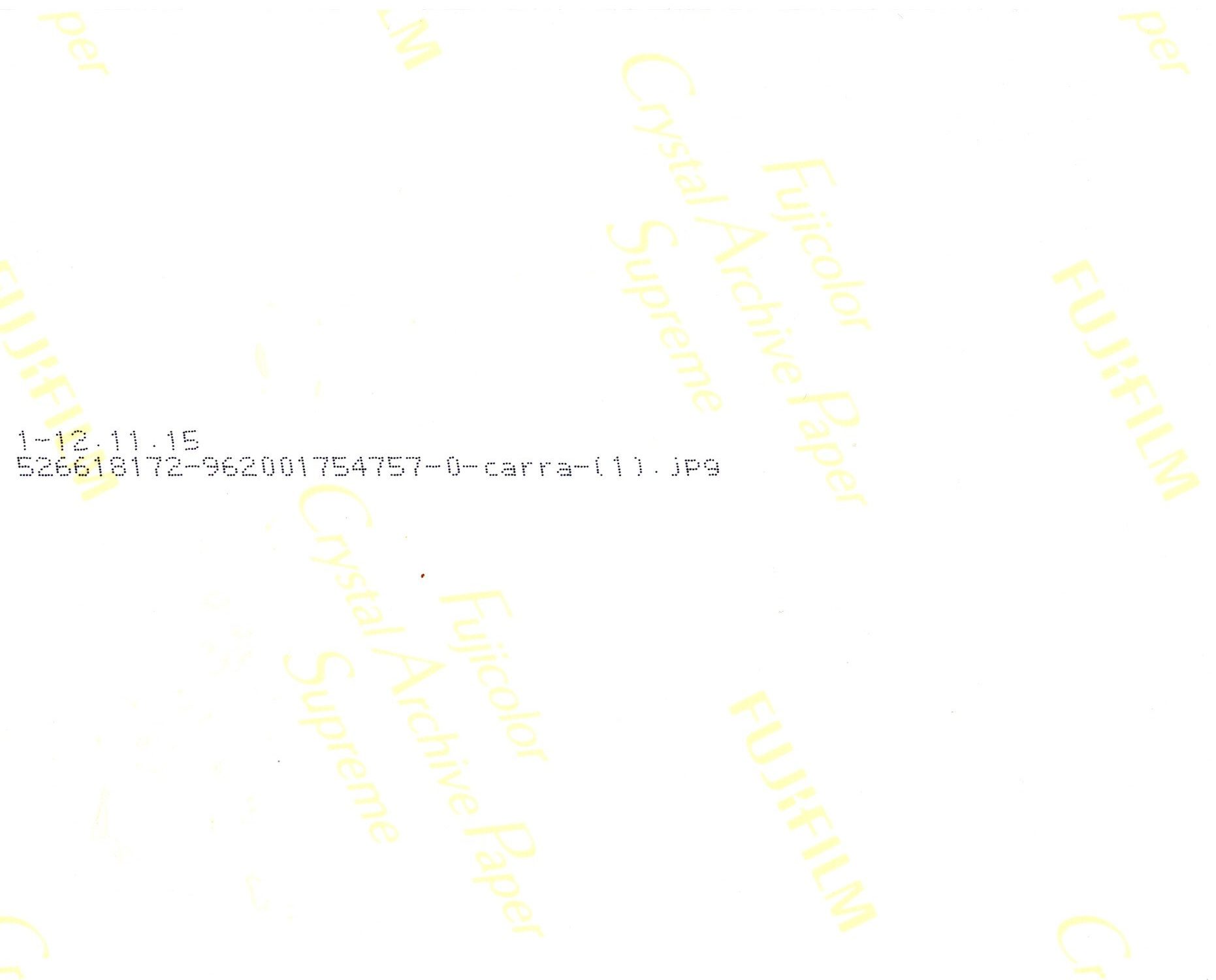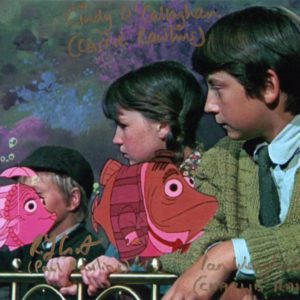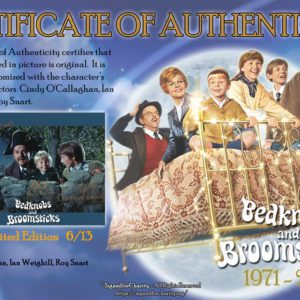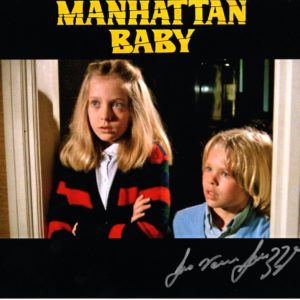Description
RAFFAELLA CARRA’ BIOGRAPHY:
Raffaella Maria Roberta Pelloni (18 June 1943 – 5 July 2021), better known as Raffaella Carrà, was an Italian singer, dancer, television presenter and actress. She was well known in Europe and Latin America as a result of her many television shows and records.
Early life
Carrà was born on 18 June 1943 in Bologna to Raffaele Pelloni and Sicilian Angela Iris Dell’Utri, her parents, however, separated shortly after the wedding and Carrà spent most of her childhood between her mother’s bar and the ice cream shop in Bellaria – Igea Marina. At the latter establishment, she grew up watching the television programme Il Musichiere, learning by heart titles, ballets, and refrains of the songs. When she was only eight years old, she left the Romagna Riviera to continue her studies directly in Rome at the National Academy of Dance. At the age of 14 she dropped out of ballet classes. In 1952 she began her studies at the Centro Sperimentale di Cinematografia until she graduated in 1960.
Career
1950s and 1960s: youth, early career and Hollywood
At the age of 9, while walking with her mother in Rome and through a family friend, she met the director Mario Bonnard who cast her in his film Tormento del passato, in which she played the character of Graziella. Carrà made her debut as a recognized actress in 1960 in the film Long Night in 1943 and in 1963 I compagni directed by Mario Monicelli and starring Marcello Mastroianni. That same year she worked in the French film La chance et l’amour with Michel Piccoli. She then appeared in many Italian peplum films, including Fury of the Pagans (1960), Atlas in the Land of the Cyclops (1961), Mole Men Against the Son of Hercules (1961), Ulysses Against the Son of Hercules (1962), Pontius Pilate (1962) and Caesar the Conqueror (1962), as well as comedies and action films such as 5 marines per 100 ragazze (1961), The Terrorist (1963), The Organizer (1963), and La Celestina P… R… (1965). In 1965, Carrà moved to Hollywood after signing a contract with 20th Century Fox and following in the footsteps of her fellow artists Gina Lollobrigida, Sophia Loren and Virna Lisi, Carrà appeared in the film Von Ryan’s Express alongside Frank Sinatra, Edward Mulhare and Trevor Howard. In 1966, she guest starred in an episode of the American television series I Spy with Bill Cosby and Robert Culp. Feeling homesick and not liking life in Los Angeles, she decided to return to Italy that same year where she starred in several Italian and French films such as Le Saint prend l’affût (1966), the Our Man Flint parody Il vostro super agente Flit (1966), Why Did I Ever Say Yes Twice? (1969), and Cran d’arrêt (1970), as well as a few television shows. On 3 March 1967, Carrà was broadcast on the National Program Tutto per bene, a TV adaptation of the novel of the same name by Luigi Pirandello. In January 1968, she presented a special broadcast on the second national network, entitled Tempo di samba. In June of the same year, she participated in the play Processo di Famiglia, by Diego Fabbri and, at the end of the following year, she starred in Il sorriso della gioconda.
Changing her surname
In the mid-1960s the director Dante Guardamagna gave her the pseudonym Carrà; fond of painting, he combined her real name, Raffaella, which reminded him of the painter Raphael Sanzio, with the surname of the painter Carlo Carrà.
1970s: International success
In 1970 Carrà participated as a guest actress in the program Io, Agata e tu together with Nino Ferrer. Shortly after, Radiotelevisione italiana (Rai) hired her to present Canzonissima 70, a Saturday night show in which she was also an actress and dancer. She also presented Canzonissima 71 and Canzonissima 74 in which she released her hit single “Ma che musica Maestro”. In 1971, she participated alongside Georges Descrières in the French-produced television series Arsenio Lupin, starring in the episode entitled La donna dai due sorrisi. In 1974 she hosted on Rai Milleluci together with singer Mina Mazzini. After her success on the Italian market, in 1975 Carrà made her first appearance in Spain on Televisión Española (TVE) when she performed in the variety show ¡Señoras y señores! She subsequently released a compilation album with Spanish versions of her songs. In 1976, TVE hired her to host four episodes of the variety show La hora de… During these years Carrà concentrated more on her singing career, achieving success in countries including Spain, Germany, France, Holland, Belgium, England, Greece, and in particular Latin American countries. One of her most resounding successes was the song A far l’amore comincia tu, the English. In 1976 Carrà recorded the album Forte forte forte, which was released in 36 countries around the world, earning her a Gold certification in Canada’. The album was followed up in 1977 with Fiesta, which features Eurodisco songs; the title track has been described as “symbol” of the soubrette. In 1978 Carrà was a guest on the Chilean programme Sábado gigante. That year she released the song “Hay que venir al sur”, the Spanish version of “Tanti Auguri”, and it was another of Carrà’s greatest hits.
1980s: Return to RAI and success in Latin America
In 1980 she starred in the film Bárbara, shot in Argentina and distributed for the South American market and which was her last feature film as a leading actress. That same year she recorded the album Mi spendo tutto which features the song “Pedro”, one of her biggest hits. In 1981 she presented Millemilioni, which was the first experiment in international television cooperation: five specials, each filmed in a different capital: Buenos Aires, Mexico City, London, Rome and Moscow. In 1982 she presented Fantastico 3 alongside Corrado, and sang the opening theme song, “Ballo ballo”, a song that would be the focus of some controversy, as accused by some of plagiarising “Eleanor Rigby” by the Beatles. Riding the wave of the success of Fantastico, the disc Raffaella Carrà 82 was released, it was arranged and composed, among others, by Franco Bracardi and Danilo Vaona, and written by Gianni Boncompagni, G. Belfiore, and Giancarlo Magalli. Later that year, Carrà appeared as the guest of honour at the Viña del Mar International Song Festival in Chile. In February 1983, she was also a guest at the Sanremo Music Festival 1983. “Soli sulla luna” and “Ahi” written by Valsiglio – Peace – Depsa, are songs recorded specifically for the occasion, recorded – “in a hurry” – as stated by the same singer. From 1983 to 1985, Carrà presented Pronto, Raffaella?, the first midday programme on Rai that cemented her role as a presenter as the show became a success, with more than 14 million viewers tuning in to watch her interview of Mother Teresa of Calcutta. Carrà also sang the theme song of the programme: Fatalità. The success of Pronto, Raffaella? won her the title of “Female TV Personality at European Level” in 1984, awarded by the European TV Magazines Association. In 1984 she signed a two-year, multimillion-dollar contract with kitchen manufacturer Scavolini, with the slogan “the most loved by Italians”. That same year, the renewal of the contract with RAI was at the center of a heated controversy with the then prime minister, Bettino Craxi, who called the amount that the conductor would have earned for an exclusive three years “immoral and scandalous”. During this time, Carrà released the albums Fatalità (1983) and Bolero (1984). In the 1985–86 television season she was the presenter of the supershow Buonasera Raffaella, the first ten episodes of which were broadcast from Rome, while the last five were broadcast live from the studios of the Rai Corporation in New York and thanks to Rai International, visible throughout North and South America. Raffaella also interviewed and duetted with illustrious guests such as Henry Kissinger, Joe Cocker, Riccardo Cocciante, Patty Pravo, Stevie Wonder, Ginger Rogers and Sammy Davis Jr. and sang the theme songs “Fidati!” and “Bellissimo”. The opening and closing theme songs of the program are contained in the album Fidati!, released in the same year. The program put Carrà once again at the centre of controversy because of high production costs, especially for the episodes transmitted via satellite from the United States. However, the transmission achieved great success, so much so as to arouse the interest of american televisions that invited Raffaella to the most famous talk shows of the time, interviewed by Johnny Carson, Ed Sullivan and David Letterman. In the 1986–87 season, Carrà presented the programme conceived by Corrado in 1976 Domenica in, and sang both the opening theme song, “Curiosità”, and the closing theme song, “Casa dolce casa”. In November 1986, during a broadcast, Carrà reacted to an article published by the weekly scandal tabloid Novella 2000, threatening legal action against the newspaper, which had accused her of neglecting her dying mother. Raffaella’s mother in fact died in 1987. Raffaella paid tribute during another episode of Domenica in, dedicating her song “I thank you life” to her. In 1987 she struck a deal with Fininvest, with a multi-million dollar contract lasting two years. The first appearance on Canale 5 of Carrà dates back to 27 December 1987: on late evenings a special titled Benvenuta Raffaella was broadcast, and the Raffaella Carrà Show debuted shortly after on 9 January 1988. It was followed by Il principe azzurro, in the spring of 1989, which was the last program presented by Carrà for Canale 5.
1990s: Work as a presenter
Once the experience at Fininvest was over, Carrà hosted the new programme Weekend of Rafaella in which she appeared with a new mature look abandoning tights and bodysuits. The programme had a sequel entitled Ricomincio da due. In early January 1990, Carrà returned to Rai to host her new show Raffaella Venerdì, Sabato e Domenica… E saranno famosi. In June 1990, she co-hosted alongside Gigi Sabani, Ricardo Fernández Deu and Miriam Díaz Aroca, Cuando calienta el sol, a two-part Rai and TVE jointly produced variety show aired live from Saint-Vincent in Italy and Tossa de Mar in Spain and broadcast simultaneously to both countries. In May 1991, she presented the Telegatto awards with Corrado. Together with Johnny Dorelli, in 1991, she hosted the Saturday night show Fantastic 12 on Rai 1, which, despite controversy caused by Roberto Benigni’s appearance, obtained ratings below expectations. From 1992 to 1995 Carrà returned to TVE, conducting three seasons of ¡Hola Raffaella!, for which she won three TP de Oro and the early evening show A las 8 con Raffaella. In the 1994–95 season, she moved to the Spanish counterpart of Fininvest, Telecinco, with the afternoon program En casa con Raffaella. At the end of 1995 she returned to Rai 1 with Carràmba! Che sorpresa. While in 1996 and from 1998 to 2000, she hosted Carràmba! Che sorpresa, Carrambà! Che fortuna, 40 minuti con Raffaella, Centoventitré and I Fantastici di Raffaella. In 1997 she also participated as a protagonist in a four-part RAI miniseries entitled Unamamma per caso, directed by Sergio Martino, in which she played the role of a single journalist. It was her last appearance on a scripted TV series. That year refused to host the Sanremo Music Festival 1997. She welcomed 1998 co-hosting with Ramón García the TVE broadcast of New Year’s clock bell strikes live from Puerta del Sol in Madrid.
2000s: Between Spain and Italy
In 2000 she presented the Gran Premio Internazionale dello Spettacolo with Paolo Bonolis.m The following year, alongside Piero Chiambretti, Enrico Papi, Megan Gale and Massimo Ceccherini, she hosted the 51st edition of the Sanremo Music Festival, which didn’t see a great amount of success. Carrà herself acknowledged that she was wrong to opt for a format that was more musical than television. After a break of about a year, Carrà returned to prime time on Rai 1 with the fourth edition of Carràmba! Che sorpresa. In 2004 she hosted the program Sogni. On 19 December 2004 she co-hosted with Ramón García and Loles León the nine-hours telethon Contigo on TVE. On 24 October 2005, she was invited to Diego Maradona’s program La Noche del 10 together with Robbie Williams.In the spring of 2006, Carrà hosted on Rai Amore, a replica of TVE’s Contigo. It was dedicated to long-distance adoptions and it achieved nearly 150,000 adoptions. Also in 2006, the actor Fabio Canino , assisted by Roberto Mancinelli, dedicated her a book named Raffabook. Più che un libro uno show del sabato sera. Around the same time, Tiziano Ferro published in the album Nessuno è solo the song E Raffaella è mia, dedicated to Carrà, who participated in the videoclip of the song, while the Spanish singer Roser recorded the album Raffaella, a tribute with Carrà’s greatest hits sung in Spanish. In December 2006 she appeared at the gala for TVE’s 50th Anniversary. On 30 November 2007 Raffica was released, two CDs and a DVD which collated all the theme songs sung and danced by Raffaella throughout her career. In 2008 TVE called her for three programs related to the Eurovision Song Contest. The first was the selection process aired on 8 March Salvemos Eurovisión. She also presented two special galas related to this festival. Shortly after, Carrà returned to Rai 1 to present a new edition of Carràmba! Che fortuna that was rewarded by the auditel, with an average of 5,000,000 daily viewers and a maximum of 6,000,000. Subsequently, Carrà returned to Spain to host an episode of the Spanish version of Saturday Night Live on Cuatro in April 2009. Also in 2008 the book Mito in tre minuti by Antimo Verde was published, an artistic biography based on research work. On 7 November of that year Raffica – Balletti & Duetti was released, a second box set of two CDs and a DVD with a selection of television performances by Carrà. That same year Carrà hosted and produced Il Gran Concerto, a television programme in which RAI National Symphony Orchestra performed pieces of classical music and opera.
2010s: Sporadic appearances
Early life
Carrà was born on 18 June 1943 in Bologna to Raffaele Pelloni and Sicilian Angela Iris Dell’Utri, her parents, however, separated shortly after the wedding and Carrà spent most of her childhood between her mother’s bar and the ice cream shop in Bellaria – Igea Marina. At the latter establishment, she grew up watching the television programme Il Musichiere, learning by heart titles, ballets, and refrains of the songs. When she was only eight years old, she left the Romagna Riviera to continue her studies directly in Rome at the National Academy of Dance. At the age of 14 she dropped out of ballet classes. In 1952 she began her studies at the Centro Sperimentale di Cinematografia until she graduated in 1960.
Career
1950s and 1960s: youth, early career and Hollywood
At the age of 9, while walking with her mother in Rome and through a family friend, she met the director Mario Bonnard who cast her in his film Tormento del passato, in which she played the character of Graziella. Carrà made her debut as a recognized actress in 1960 in the film Long Night in 1943 and in 1963 I compagni directed by Mario Monicelli and starring Marcello Mastroianni. That same year she worked in the French film La chance et l’amour with Michel Piccoli. She then appeared in many Italian peplum films, including Fury of the Pagans (1960), Atlas in the Land of the Cyclops (1961), Mole Men Against the Son of Hercules (1961), Ulysses Against the Son of Hercules (1962), Pontius Pilate (1962) and Caesar the Conqueror (1962), as well as comedies and action films such as 5 marines per 100 ragazze (1961), The Terrorist (1963), The Organizer (1963), and La Celestina P… R… (1965). In 1965, Carrà moved to Hollywood after signing a contract with 20th Century Fox and following in the footsteps of her fellow artists Gina Lollobrigida, Sophia Loren and Virna Lisi, Carrà appeared in the film Von Ryan’s Express alongside Frank Sinatra, Edward Mulhare and Trevor Howard. In 1966, she guest starred in an episode of the American television series I Spy with Bill Cosby and Robert Culp. Feeling homesick and not liking life in Los Angeles, she decided to return to Italy that same year where she starred in several Italian and French films such as Le Saint prend l’affût (1966), the Our Man Flint parody Il vostro super agente Flit (1966), Why Did I Ever Say Yes Twice? (1969), and Cran d’arrêt (1970), as well as a few television shows. On 3 March 1967, Carrà was broadcast on the National Program Tutto per bene, a TV adaptation of the novel of the same name by Luigi Pirandello. In January 1968, she presented a special broadcast on the second national network, entitled Tempo di samba. In June of the same year, she participated in the play Processo di Famiglia, by Diego Fabbri and, at the end of the following year, she starred in Il sorriso della gioconda.
Changing her surname
In the mid-1960s the director Dante Guardamagna gave her the pseudonym Carrà; fond of painting, he combined her real name, Raffaella, which reminded him of the painter Raphael Sanzio, with the surname of the painter Carlo Carrà.
1970s: International success
In 1970 Carrà participated as a guest actress in the program Io, Agata e tu together with Nino Ferrer. Shortly after, Radiotelevisione italiana (Rai) hired her to present Canzonissima 70, a Saturday night show in which she was also an actress and dancer. She also presented Canzonissima 71 and Canzonissima 74 in which she released her hit single “Ma che musica Maestro”. In 1971, she participated alongside Georges Descrières in the French-produced television series Arsenio Lupin, starring in the episode entitled La donna dai due sorrisi. In 1974 she hosted on Rai Milleluci together with singer Mina Mazzini. After her success on the Italian market, in 1975 Carrà made her first appearance in Spain on Televisión Española (TVE) when she performed in the variety show ¡Señoras y señores! She subsequently released a compilation album with Spanish versions of her songs. In 1976, TVE hired her to host four episodes of the variety show La hora de… During these years Carrà concentrated more on her singing career, achieving success in countries including Spain, Germany, France, Holland, Belgium, England, Greece, and in particular Latin American countries. One of her most resounding successes was the song A far l’amore comincia tu, the English. In 1976 Carrà recorded the album Forte forte forte, which was released in 36 countries around the world, earning her a Gold certification in Canada’. The album was followed up in 1977 with Fiesta, which features Eurodisco songs; the title track has been described as “symbol” of the soubrette. In 1978 Carrà was a guest on the Chilean programme Sábado gigante. That year she released the song “Hay que venir al sur”, the Spanish version of “Tanti Auguri”, and it was another of Carrà’s greatest hits.
1980s: Return to RAI and success in Latin America
In 1980 she starred in the film Bárbara, shot in Argentina and distributed for the South American market and which was her last feature film as a leading actress. That same year she recorded the album Mi spendo tutto which features the song “Pedro”, one of her biggest hits. In 1981 she presented Millemilioni, which was the first experiment in international television cooperation: five specials, each filmed in a different capital: Buenos Aires, Mexico City, London, Rome and Moscow. In 1982 she presented Fantastico 3 alongside Corrado, and sang the opening theme song, “Ballo ballo”, a song that would be the focus of some controversy, as accused by some of plagiarising “Eleanor Rigby” by the Beatles. Riding the wave of the success of Fantastico, the disc Raffaella Carrà 82 was released, it was arranged and composed, among others, by Franco Bracardi and Danilo Vaona, and written by Gianni Boncompagni, G. Belfiore, and Giancarlo Magalli. Later that year, Carrà appeared as the guest of honour at the Viña del Mar International Song Festival in Chile. In February 1983, she was also a guest at the Sanremo Music Festival 1983. “Soli sulla luna” and “Ahi” written by Valsiglio – Peace – Depsa, are songs recorded specifically for the occasion, recorded – “in a hurry” – as stated by the same singer. From 1983 to 1985, Carrà presented Pronto, Raffaella?, the first midday programme on Rai that cemented her role as a presenter as the show became a success, with more than 14 million viewers tuning in to watch her interview of Mother Teresa of Calcutta. Carrà also sang the theme song of the programme: Fatalità. The success of Pronto, Raffaella? won her the title of “Female TV Personality at European Level” in 1984, awarded by the European TV Magazines Association. In 1984 she signed a two-year, multimillion-dollar contract with kitchen manufacturer Scavolini, with the slogan “the most loved by Italians”. That same year, the renewal of the contract with RAI was at the center of a heated controversy with the then prime minister, Bettino Craxi, who called the amount that the conductor would have earned for an exclusive three years “immoral and scandalous”. During this time, Carrà released the albums Fatalità (1983) and Bolero (1984). In the 1985–86 television season she was the presenter of the supershow Buonasera Raffaella, the first ten episodes of which were broadcast from Rome, while the last five were broadcast live from the studios of the Rai Corporation in New York and thanks to Rai International, visible throughout North and South America. Raffaella also interviewed and duetted with illustrious guests such as Henry Kissinger, Joe Cocker, Riccardo Cocciante, Patty Pravo, Stevie Wonder, Ginger Rogers and Sammy Davis Jr. and sang the theme songs “Fidati!” and “Bellissimo”. The opening and closing theme songs of the program are contained in the album Fidati!, released in the same year. The program put Carrà once again at the centre of controversy because of high production costs, especially for the episodes transmitted via satellite from the United States. However, the transmission achieved great success, so much so as to arouse the interest of american televisions that invited Raffaella to the most famous talk shows of the time, interviewed by Johnny Carson, Ed Sullivan and David Letterman. In the 1986–87 season, Carrà presented the programme conceived by Corrado in 1976 Domenica in, and sang both the opening theme song, “Curiosità”, and the closing theme song, “Casa dolce casa”. In November 1986, during a broadcast, Carrà reacted to an article published by the weekly scandal tabloid Novella 2000, threatening legal action against the newspaper, which had accused her of neglecting her dying mother. Raffaella’s mother in fact died in 1987. Raffaella paid tribute during another episode of Domenica in, dedicating her song “I thank you life” to her. In 1987 she struck a deal with Fininvest, with a multi-million dollar contract lasting two years. The first appearance on Canale 5 of Carrà dates back to 27 December 1987: on late evenings a special titled Benvenuta Raffaella was broadcast, and the Raffaella Carrà Show debuted shortly after on 9 January 1988. It was followed by Il principe azzurro, in the spring of 1989, which was the last program presented by Carrà for Canale 5.
1990s: Work as a presenter
Once the experience at Fininvest was over, Carrà hosted the new programme Weekend of Rafaella in which she appeared with a new mature look abandoning tights and bodysuits. The programme had a sequel entitled Ricomincio da due. In early January 1990, Carrà returned to Rai to host her new show Raffaella Venerdì, Sabato e Domenica… E saranno famosi. In June 1990, she co-hosted alongside Gigi Sabani, Ricardo Fernández Deu and Miriam Díaz Aroca, Cuando calienta el sol, a two-part Rai and TVE jointly produced variety show aired live from Saint-Vincent in Italy and Tossa de Mar in Spain and broadcast simultaneously to both countries. In May 1991, she presented the Telegatto awards with Corrado. Together with Johnny Dorelli, in 1991, she hosted the Saturday night show Fantastic 12 on Rai 1, which, despite controversy caused by Roberto Benigni’s appearance, obtained ratings below expectations. From 1992 to 1995 Carrà returned to TVE, conducting three seasons of ¡Hola Raffaella!, for which she won three TP de Oro and the early evening show A las 8 con Raffaella. In the 1994–95 season, she moved to the Spanish counterpart of Fininvest, Telecinco, with the afternoon program En casa con Raffaella. At the end of 1995 she returned to Rai 1 with Carràmba! Che sorpresa. While in 1996 and from 1998 to 2000, she hosted Carràmba! Che sorpresa, Carrambà! Che fortuna, 40 minuti con Raffaella, Centoventitré and I Fantastici di Raffaella. In 1997 she also participated as a protagonist in a four-part RAI miniseries entitled Unamamma per caso, directed by Sergio Martino, in which she played the role of a single journalist. It was her last appearance on a scripted TV series. That year refused to host the Sanremo Music Festival 1997. She welcomed 1998 co-hosting with Ramón García the TVE broadcast of New Year’s clock bell strikes live from Puerta del Sol in Madrid.
2000s: Between Spain and Italy
In 2000 she presented the Gran Premio Internazionale dello Spettacolo with Paolo Bonolis.m The following year, alongside Piero Chiambretti, Enrico Papi, Megan Gale and Massimo Ceccherini, she hosted the 51st edition of the Sanremo Music Festival, which didn’t see a great amount of success. Carrà herself acknowledged that she was wrong to opt for a format that was more musical than television. After a break of about a year, Carrà returned to prime time on Rai 1 with the fourth edition of Carràmba! Che sorpresa. In 2004 she hosted the program Sogni. On 19 December 2004 she co-hosted with Ramón García and Loles León the nine-hours telethon Contigo on TVE. On 24 October 2005, she was invited to Diego Maradona’s program La Noche del 10 together with Robbie Williams.In the spring of 2006, Carrà hosted on Rai Amore, a replica of TVE’s Contigo. It was dedicated to long-distance adoptions and it achieved nearly 150,000 adoptions. Also in 2006, the actor Fabio Canino , assisted by Roberto Mancinelli, dedicated her a book named Raffabook. Più che un libro uno show del sabato sera. Around the same time, Tiziano Ferro published in the album Nessuno è solo the song E Raffaella è mia, dedicated to Carrà, who participated in the videoclip of the song, while the Spanish singer Roser recorded the album Raffaella, a tribute with Carrà’s greatest hits sung in Spanish. In December 2006 she appeared at the gala for TVE’s 50th Anniversary. On 30 November 2007 Raffica was released, two CDs and a DVD which collated all the theme songs sung and danced by Raffaella throughout her career. In 2008 TVE called her for three programs related to the Eurovision Song Contest. The first was the selection process aired on 8 March Salvemos Eurovisión. She also presented two special galas related to this festival. Shortly after, Carrà returned to Rai 1 to present a new edition of Carràmba! Che fortuna that was rewarded by the auditel, with an average of 5,000,000 daily viewers and a maximum of 6,000,000. Subsequently, Carrà returned to Spain to host an episode of the Spanish version of Saturday Night Live on Cuatro in April 2009. Also in 2008 the book Mito in tre minuti by Antimo Verde was published, an artistic biography based on research work. On 7 November of that year Raffica – Balletti & Duetti was released, a second box set of two CDs and a DVD with a selection of television performances by Carrà. That same year Carrà hosted and produced Il Gran Concerto, a television programme in which RAI National Symphony Orchestra performed pieces of classical music and opera.
2010s: Sporadic appearances

